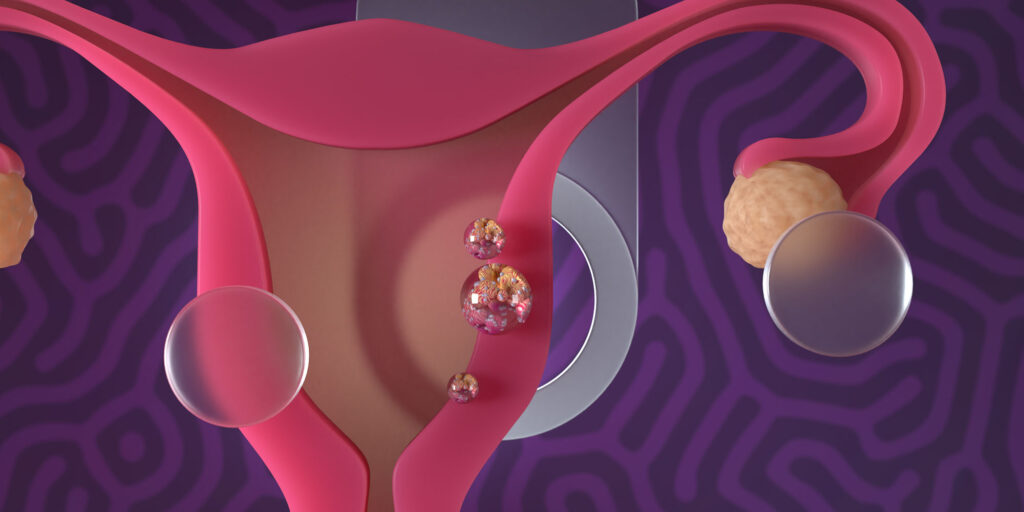Causes
The cause of endometrial cancer isn’t known. What’s known is that something happens to cells in the lining of the uterus that changes them into cancer cells.
Endometrial cancer starts when cells in the lining of the uterus, called the endometrium, get changes in their DNA. A cell’s DNA holds the instructions that tell the cell what to do. The changes tell the cells to multiply quickly. The changes also tell the cells to continue living when healthy cells would die as part of their natural life cycle. This causes a lot of extra cells. The cells might form a mass called a tumor. The cells can invade and destroy healthy body tissue. In time, the cells can break away and spread to other parts of the body.
Risk Factors
- Changes in the balance of hormones in the body. The two main hormones the ovaries make are estrogen and progesterone. Changes in the balance of these hormones cause changes in the endometrium.
A disease or condition that increases the amount of estrogen, but not the level of progesterone, in the body can increase the risk of endometrial cancer. Examples include obesity, diabetes, and irregular ovulation patterns, which might happen in polycystic ovary syndrome. Taking hormone therapy medicine that contains estrogen but not progestin after menopause increases the risk of endometrial cancer.
A rare type of ovarian tumor that gives off estrogen also can increase the risk of endometrial cancer.
- More years of menstruation. Starting menstruation before age 12 or beginning menopause later increases the risk of endometrial cancer. The more periods you’ve had, the more exposure your endometrium has had to estrogen.
- Never having been pregnant. If you’ve never been pregnant, you have a higher risk of endometrial cancer than someone who has had at least one pregnancy.
- Older age. As you get older, your risk of endometrial cancer increases. Endometrial cancer occurs most often after menopause.
- Obesity. Being obese increases your risk of endometrial cancer. This may happen because extra body fat can alter your body’s balance of hormones.
- Hormone therapy for breast cancer. Taking the hormone therapy medicine tamoxifen for breast cancer can increase the risk of developing endometrial cancer. If you’re taking tamoxifen, talk about the risk with your healthcare team. For most, the benefits of tamoxifen outweigh the small risk of endometrial cancer.
- An inherited syndrome that increases the risk of cancer. Lynch syndrome increases the risk of colon cancer and other cancers, including endometrial cancer. Lynch syndrome is caused by a DNA change that’s passed from parents to children. If a family member has been diagnosed with Lynch syndrome, ask your healthcare team about your risk of this genetic syndrome. If you’ve been diagnosed with Lynch syndrome, ask what cancer screenings you need.



